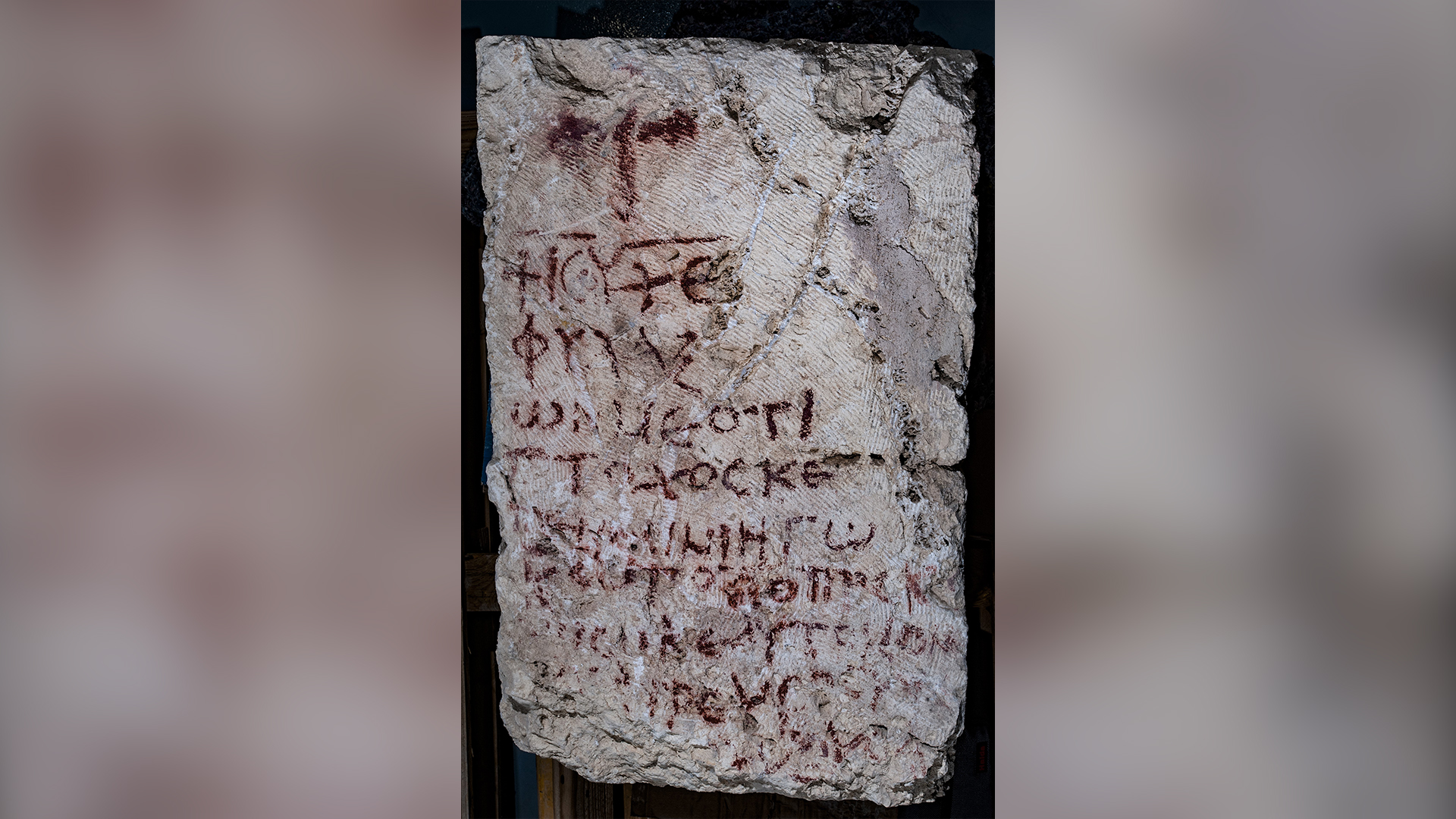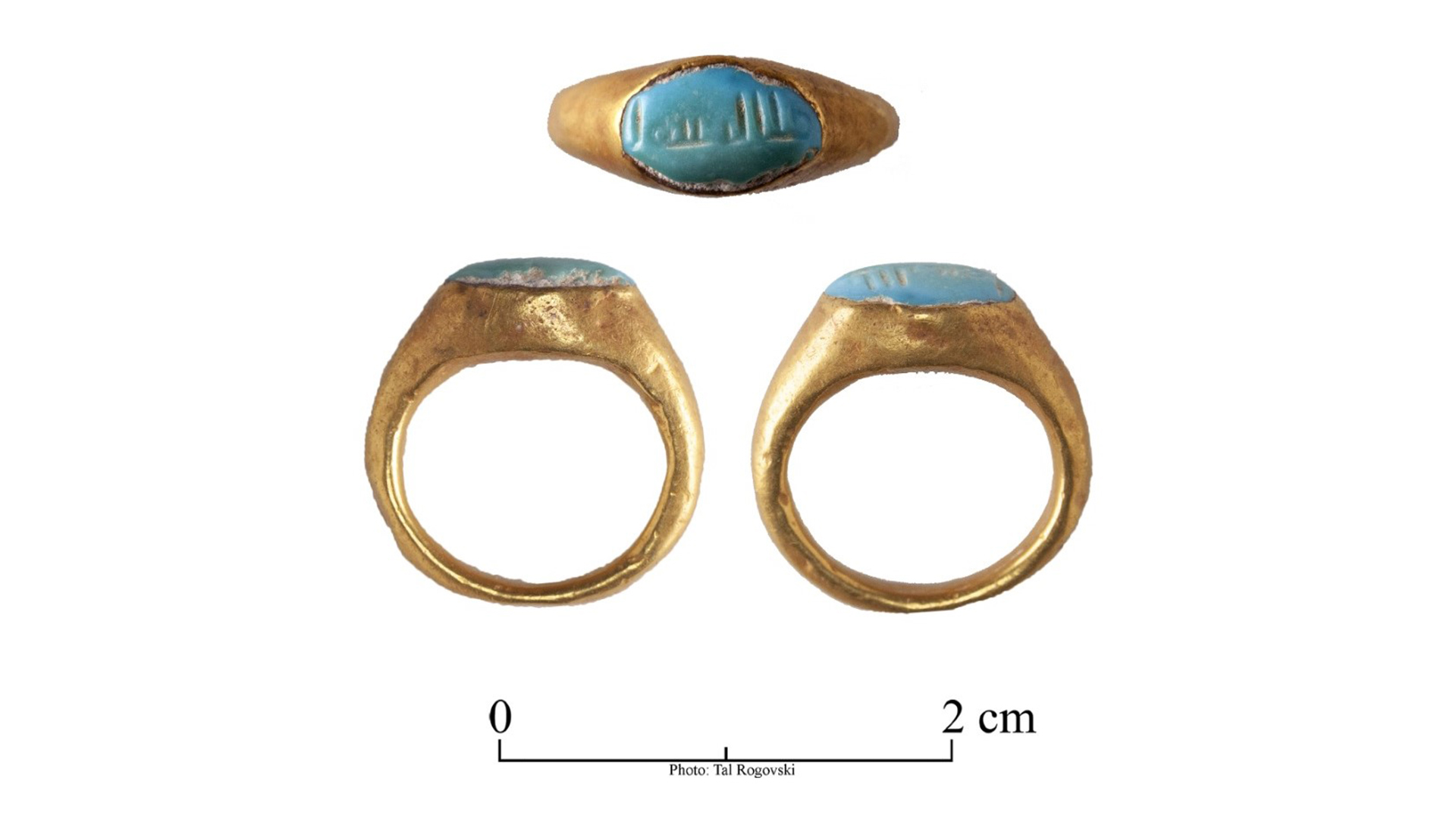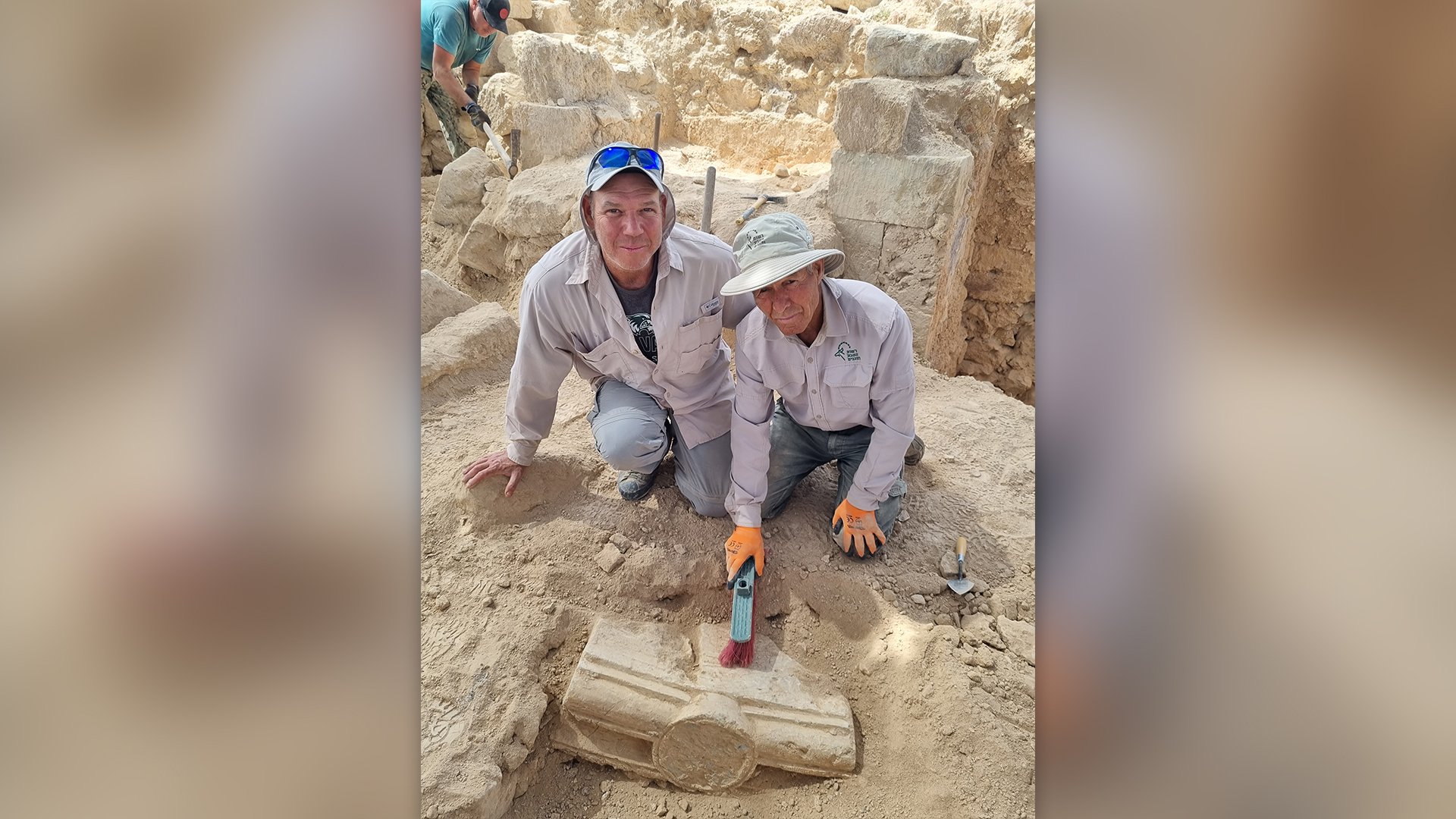An incorrect version of 'Prayer of David' discovered at 'Little Castle' in West Bank
A 1,500-year-old text recording a section of Psalm 86 — also known as "A prayer of David" — has been discovered in what was a monastery in the West Bank.

A 1,500-year-old text recording a section of Psalm 86 — also known as "A prayer of David" — has been discovered in what was a monastery 11 miles (17 kilometers) southeast of Jerusalem in the West Bank.
The text is written in Koine Greek, a language often used in early copies of the New Testament, the team said in a statement. It was inscribed on a building block located on the floor of the monastery and has a cross drawn on it.
The text reads, "Jesus Christ, guard me, for I am poor and needy," which is incorrect. The psalm actually says, "Hear me, Lord, and answer me, for I am poor and needy. Guard my life, for I am faithful to you," the researchers said in the statement.
While the writer wrote in Greek, his text contained grammatical errors, suggesting that the writer’s native tongue was a semitic language, the researchers said in the statement.
Related: Biblical war revealed on 2,800 year-old stone altar
The ancient monastery is located at the site of Hyrcania and was built on the remains of a 2,100-year-old fortress constructed by the Hasmoneans, a dynasty of Jewish rulers that controlled the region at the time. The monastery was built in 492 and was named Kastellion, or "Little Castle," in ancient Greek, according to the statement.
At the time the monastery was built, the area was part of the Byzantine Empire, which controlled lands stretching from the Balkans to Egypt. In 635, the Rashidun Caliphate (which was Islamic) conquered the region, but the monastery kept operating, the archaeologists found.
Get the world’s most fascinating discoveries delivered straight to your inbox.
There have been brief archaeological investigations of the monastery before but this is the first large-scale scientific excavation the team said.
Archaeologists also found a gold ring with a turquoise stone on it. At a little over 0.4 inch (1 centimeter) in diameter, it was likely for a child. The ring contains an Arabic inscription that says "Mashallah," which translates to "God has willed it," and the style of writing indicates that the inscription was written around 1,300 years ago. It's unclear who exactly would have worn this ring.
Excavations at the site and analysis of the remains are ongoing.

Owen Jarus is a regular contributor to Live Science who writes about archaeology and humans' past. He has also written for The Independent (UK), The Canadian Press (CP) and The Associated Press (AP), among others. Owen has a bachelor of arts degree from the University of Toronto and a journalism degree from Ryerson University.
 Live Science Plus
Live Science Plus







